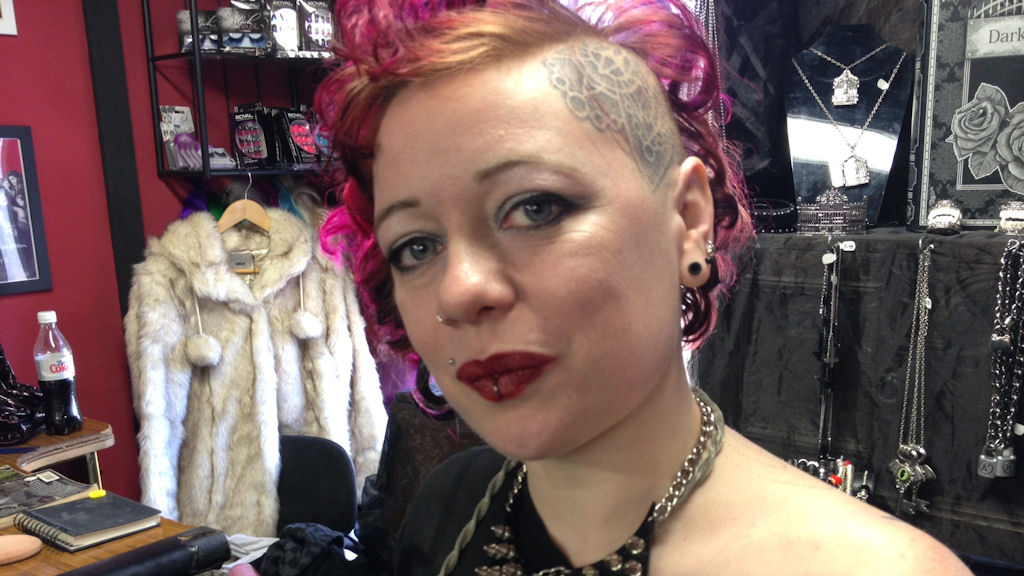Attacks on goths, punks and emos are ‘hate crimes’
Greater Manchester Police becomes the first force in the country to record attacks against members of “alternative sub-cultures” as hate crimes.
Attacks on goths, emos, punks and metallers – as well as other sub-cultures – will be classified by Greater Manchester Police in the same way as abuse based on religion, race, disability, sexual orientation or transgender identity.
The force will record the attacks as hate crimes, which means the judge will take into account the motivation behind the abuse when sentencing the attackers.
Assistant Chief Constable Garry Shewan said: “People who wish to express their alternative sub-culture identity freely should not have to tolerate hate crime – something that many people have to endure on a daily basis.”
ACC Shewan also confirmed to Channel 4 News that skaters, skinheads, bikers and bodybuilders would be recognised as victims of hate crime.
People who wish to express their alternative sub-culture identity freely should not have to tolerate hate crime. ACC Garry Shewan
The change in the classification comes five years after Sophie Lancaster, 20 (pictured), was beaten to death in a park in Bacup, Lancashire, because she was dressed as a goth. Her killers were sentenced in 2008, when the judge recognised that the attack was a hate crime.
@channel4news this boggles me. Hate is hate. Does a ring in your lip make you invisible? Were these crimes previously ignored?
— Scott Today (@MrSJPBetts) April 4, 2013
“Sophie’s tragic death brought forward a need to recognise that there are many other victims of hate crime that should be protected by law… Hate crime ruins many people’s lives and in some cases can tragically cost lives,” added ACC Shewan.
Timely decision - or pointless definitions?
Greater Manchester Police described its hate crime changes as a "breakthrough". But others are not so sure. Writing in The Daily Telegraph, Colin Freeman asked: "Isn't hate crime against goths and punks just old-fashioned yobbery?"
On Twitter, @adiskype told Channel 4 News he had been abused "many, many times" for how he looked, but added: "But these are already crimes... Crime is crime, get details at trial."
The key difference in classifying an attack as a hate crime - as well as helping police identify patterns and help victims - is at sentencing, when the judge can take into account the circumstances behind the attack and consider if this means a harsher sentence should be imposed.
Others said there were issues around identifying some groups as potentially at risk, but not others. @Jace1986 wrote: "Great that @gmpolice do this but they need to be careful they do not discount other "groups" from being discriminated against." On Facebook, Melissa Neil wrote: "I don't think this is the same as being attacked for your disability, race, culture or sexuality as these are things you can do nothing about. You can of course change your appearance if you are a goth."
However other people said it was an important step. Again on Facebook, Elizabeth Bremer told Channel 4 News: "I absolutely hate all bullying and hate crime. It is a social evil that needs to be taken as seriously as racism and homophobia are in society today."
What do you think? Get in touch on Facebook, on Twitter or on our Google+ page.
Validation
After Sophie’s death, her family set up the Sophie Lancaster Foundation to create respect and understanding of sub-cultures. Her mother Sylvia today described the police recognition of goth hate crime as a “validation” of their work.
While there are no immediate plans to change the national hate crimes register, equalities minister Lynne Featherstone has acknowledged that the recognised categories of hate crime are an “incomplete” list.
@channel4news @gmpolice “Get a hair cut.” “Aye yer coat.” To dare to be different in Belfast was to dare indeed.
— Sean Moss (@VigothePainting) April 4, 2013
For now, Greater Manchester Police said its aim was to better understand how people were suffering hate crime as a result of their appearance, and also to help the force better respond to victims of crime.
ACC Shewan pointed out on Twitter that it was the first force to record homophobic hate crime in the 1990s, an offence which is now enshrined in law as sexual orientation hate crime.

Miki Christi, shopowner in Manchester, told Channel 4 News: “I’ve been spat at, shoved, verbally abused and physically attacked, just because of the way I look.”